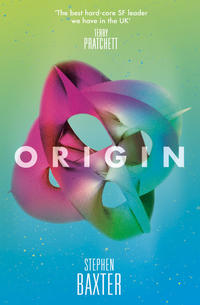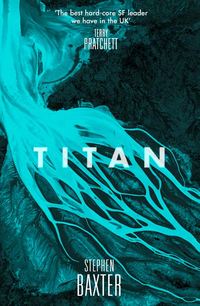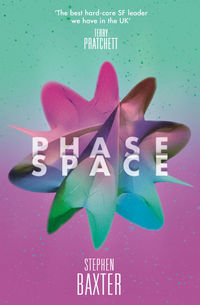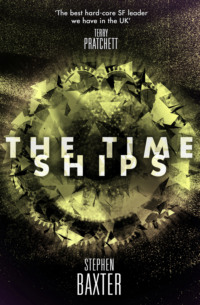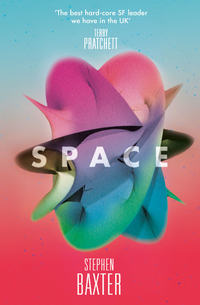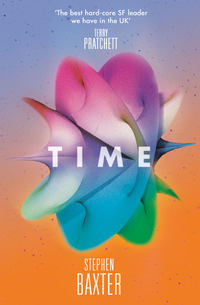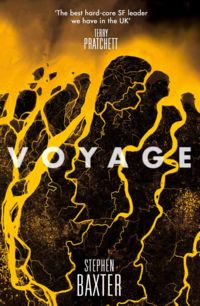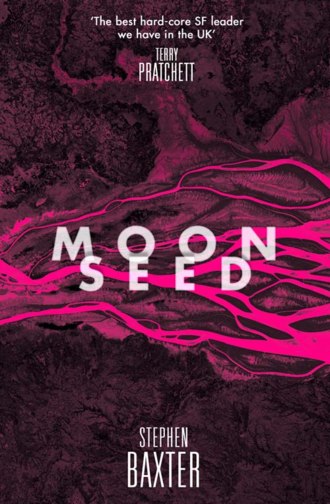
Полная версия
Moonseed
Rocks everywhere, all carefully labelled and tracked by a full-time curator. Grad students were encouraged to discard whatever they didn’t absolutely need for the future, but Henry knew that no geologist would willingly give up a single grain of sand.
To Henry it felt like coming home, after the crush and squalor of the plane, the jangling confusion of his first jet-lagged encounter with Edinburgh.
The clean lab, where the Moon rock would be processed, was a couple of storeys up. Henry was expecting a close cousin of the Lunar Curatorial Facility back home at JSC.
Well, there was a small, cramped airlock chamber here, a couple of wooden doors, like JSC. But there were no bunny suits or hats. It was just another lab, dusty, lined with grubby-looking wooden benches. There were fume cupboards on the walls, with safety notices, but their doors were ajar. Mike said the room had mostly been used, previously, by oceanographers looking for trace elements in sea water, like osmium or helium. At least there were steel-and-glass glove boxes sitting on the antique wooden benches, cheerfully bolted in place. And there were rocks, nondescript lumps, inside each of the boxes.
There was nobody working here right now. Too early in the morning, maybe.
‘… The samples here are mostly just dummies,’ Mike said. ‘A couple of meteorites and stuff. We really wanted to learn how to handle the samples. The containers are under positive pressure. I mean, the interiors contain air at a higher pressure than outside, so if there is any breach of containment the lunar material would be blown outwards, rather than have earthly contamination blow inwards. By comparison, if we were looking at radioactive material the pressure would be negative – air would be sucked inside a box in a breach, so that radioactivity would be contained. We store the samples in ultra-dry nitrogen …’
I know, Henry thought as Mike chattered nervously on. I know.
The positive pressure made the gloves, of black rubber, stick out from the boxes like questing arms, two or three feet long. As Henry walked past, the gloves seemed to bat at his chest, blindly.
‘This clean room,’ said Henry mildly, ‘doesn’t seem too clean to me. The lab at NASA is like Fort Knox.’
Mike looked defensive. ‘We’re trying to establish positive pressure in the room as a whole, but we’re having some trouble.’
‘Trouble?’
‘It’s kind of leaky. We don’t have the funding you guys have. And –’
Henry laughed. ‘My friend, I couldn’t give a rat’s ass. Moon rocks are just rocks. We’ll just roll up our sleeves and scrape off the shit. What do you say? Come on, show me one of these fancy boxes NASA has paid for.’
Mike grinned, still nervous. He led Henry to a glove box.
Henry knew from long experience that putting your hands into the gloves was a trick. You had to position your fingers over the fingers of the glove section, and then ram your arm into the aperture, pushing the glove right-side out by main force. It was easy to get your fingers in the wrong hole. And once inside the thick, somewhat stiff gloves, it was impossible to feel anything, and your hands got hot quickly. Learning to do delicate work in these things took time.
He noticed Mike had gotten his hands in there, ready to work, in seconds. Now he was picking up tools inside the box, confidently.
‘We’re working to the same standards as you do at Houston,’ he said. ‘The tools are Teflon, aluminum alloys and stainless steel. Stuff that won’t corrupt the rocks. The samples are sliced with lubricant-free handsaws and power saws, stainless steel blades edged with diamond.’
‘How do you find those things to work with?’
Mike shrugged. ‘Buggers. The lack of lubricant makes the saws heavy and difficult to work, and the blades wear out quickly. But you get the job done. You need strong arms, though.’
‘That you do.’
Mike pulled his arms briskly out of the gloves, and led Henry to the largest, best-lit case in the room, right at the centre. And there, on a small pedestal, sat sample 86047, an unprepossessing fist-sized lump of coal-black basalt, untidy and inert. Beside it rested a small plastic cube, labelled up-down and with the four points of the compass.
Mike bent to the case, and the fluorescent lighting underlit his face, making him look even younger.
‘Here it is,’ he said. ‘I can’t quite believe it’s here. That it’s – you know – real. That some guy picked it up on the Moon, and now it’s here.’
‘Believe it. You know about the documentation trail on these babies?’
‘Sure …’
In principle each Apollo sample had been photographed before it was picked up off the surface. The photo was the clue to the rock’s context. For instance, the pattern of shadows from the unremitting lunar sunlight gave the clue to its orientation. Since the scientists knew exactly when the rock was picked up, and where, and how high the sun would have been in the black lunar sky at that moment, they could position the rock in a strong light to recreate the shadows in the photograph, and so work out the rock’s precise orientation. Then they photographed the rock again alongside the small dice-like orientation cube. The cube stayed with the rock forever after. All this was important because, for instance, the underside of the rock would have been protected from the sun, and so processed differently.
‘… Great theory,’ said Henry sourly. ‘But it heads out the window when your astronaut fouls up. The orientation we have here is just a best guess. Shit. This rock sits there a billion years, waiting to be found, and we screw it up in the first second of contact …’
Two people bustled into the lab: a greying, portly older man, and a woman of about twenty-seven.
The man shook Henry’s hand. ‘Dr Meacher.’
‘Henry, please.’
‘Dan McDiarmid. I’m heading up the investigation here, from our side of the pond. Welcome to Edinburgh.’
‘Good to meet you, Danny.’
McDiarmid flinched but held his ground. ‘We weren’t expecting you quite so – informally.’ He was eyeing Henry’s stubble.
There wasn’t a trace of Scottish in his accent, as far as Henry could tell. He knew the type, he thought. His creative days long past, McDiarmid had used whatever reputation he had earned to win power and wealth, to turn himself into a Great Man.
Authority. The antithesis of science.
Now the woman pressed forward, thin and intense, sharp blue eyes. ‘Marge Case,’ she said. ‘I took my degree at Cambridge, and a doctorate in lunar feldspathic breccia crystallization history –’
‘I know about your work.’ Henry noticed both McDiarmid and Case had just ignored Mike; in fact Case had literally pushed past Mike to get to Henry.
Henry retrieved his hand from Case. ‘Hey. Mike. Stick around.’
Mike turned, confused. ‘You want me to get you a coffee?’
‘Hell, no, I don’t want a coffee. Well, yes I do, but not right now. Just hang loose, bubba.’
McDiarmid said with evident difficulty, ‘We want to offer you every hospitality and resource. Marge here will work as your lead technician, and –’
‘Sorry.’ Henry reached out to Mike, got hold of the shoulder of his jacket, and pulled him back. ‘Post’s taken.’
Case looked at Mike with precisely the reaction Henry had expected. ‘But I have a doctorate in –’
‘You said already. I’m sure Mike and I can find you something to do.’ Henry put his arms around their shoulders, and began to lead them to the door; McDiarmid followed, hands fluttering over his belly. ‘We’re going to be one big family,’ Henry said. ‘Just like the Waltons. Do you get the Waltons? Now, Mike. Where do we get that coffee?’
When he was done tormenting Case and McDiarmid, he relented and let Mike drive him back to the Balmoral.
Mike drove in silence, apparently confused. Henry wondered if he was being cruel to him, in some obscure way.
Am I just playing games with this guy? Or do I really think he will do a better job than Marge Case?
Well, sure he did.
But maybe he was being too smart at filling in Mike’s life story.
Henry suppressed a sigh. When the divorce from Geena was finalized – when he learned the Shoemaker was canned and he was going to have to leave Houston – it was as if his life was ending. He was glad when that crummy BA 747 left the tarmac at Houston Intercontinental, because it was like a little death.
But, unlike whatever lay beyond death, Edinburgh contained people, and choices, and already, just a few hours here, Henry had, on a whim, made two enemies and one dubious friend. And for what?
Anyhow, it was done.
Mike dropped him at the hotel, and Henry lugged his suitcase inside. Mike drove back to the King’s Buildings; he said he wanted to start work, preparing for the first samples from 86047.
Henry checked in.
The room rate was quite fantastically expensive. What was it with Brit hotels? Henry wasn’t paying, but he hated to waste money; the sooner he got out of here the better.
Still, his room wasn’t so bad. A big double bed – a duvet, not blankets – and a kettle and a whole stack of tea bags and a mini bar, and complimentary sunscreen in the bathroom. He was on the fifth floor, and he was looking east; he would get the sun in the morning.
He took off his shoes and his stinking socks, and padded to the window.
Looking north beyond the city’s roof tops he could see the Firth of Forth, a dreamy-blue arm of the sea. Calton Hill pushed out of the foreground. Calton was one of the ancient volcanic plugs that underpinned the city. It was coated with grass, and crowned by absurd-looking classical-style buildings, such as an open portico – some kind of unfinished temple, it seemed – and a telescope tower.
Mike had been right that Edinburgh was the home of geology. The old igneous structures here had been studied right from the beginning of the discipline. In fact James Hutton in the eighteenth century, based in Edinburgh, was the first to come up with modern theories of the processes that shaped Earth – the first man in history, perhaps, to understand the extent of the vast deserts of geological time that surrounded him.
Henry wondered, briefly, how that must have felt: to be the only human on the planet who knew …
I ought to sleep, he thought.
He tried the TV. There were five main channels and cable and satellite. The main channels were full of soaps and other daytime bullshit. He found a British news channel called Sky and watched that for a while, but the news meant little to him. There was a story about problems for the Government over integration into Europe, and some kind of IRA bomb threat that had caused gridlock in Birmingham, and, my God, a riot in some part of Scotland – what looked like a dire residential area called the Gorbals, in Glasgow – a spokesman who said in a thick accent, We never accepted the Union of the Parliaments, and that’s that. It turned out he wasn’t talking about the modern devolved assembly but the abolition of a Scottish Parliament in favour of a single British one, which had happened, for God’s sake, in 1707. And then commentators on the Irish stuff talked about some guy called William of Orange, who had his fifteen minutes of fame in 1688.
1707, 1688. Dates from prehistory for North America, dates as remote as 5000 BC.
There was no US news at all.
He tried to remember the last British news story he’d noticed back home. Some royal bullshit, probably.
Britain, he was coming to see, was built on a long and complex history. Shame they hadn’t got more of it right, he thought.
But then that was complacent. Britain was peaceful and prosperous and proud of itself and, hell, even pretty democratic. The US should last to be a thousand years old; then we’ll see what shape we’re in …
He flipped around until he found CNN. Lying on his bed, he studied baseball scores, one of his routines for conning himself to sleep.
But, though he was tired, he was not sleepy, and some part of him was reacting to the fact that it wasn’t even midday outside, and the day was a-wasting.
He’d done a lot of travelling in the course of his career. But he’d never yet got used to this planet-hopping.
He considered raiding the room’s mini-bar. Or maybe he should go back to the institute and rattle McDiarmid’s cage a little more. Or maybe he should just go find a USA Today.
Bored, sour, he got up, pulled on a fresh T-shirt, and walked out of the room.
He found himself on Princes Street, a broad, straight road that ran east to west. It seemed to be the spine of the shopping area, and it was crowded with traffic and shoppers. The pedestrians were all in big floppy hats and baggy white clothes with their faces smeared with cream.
The street’s north side was lined with plastic shop frontages, and on its south side there was a park called Princes Street Gardens: set in a valley, crammed with monuments and features. Pretty. But, Jesus, it was cold, a breeze gusting down the street like it was a wind tunnel. Henry, with just his T-shirt, wrapped his arms around his chest. Maybe he’d get more tolerant to this when he got over the loss of Houston’s muggy, comfortable warmth.
Anyhow, if he was lucky he’d be out of here before winter came.
He got his orientation quickly.
He could see the asymmetrical profiles of Calton Hill and Castle Rock from here, with the heart of the city stretching between them, and Arthur’s Seat on the outskirts of the city, a blocky, uncompromising mound. The glaciers had flowed east over this place, scraping off the younger sedimentary rocks and leaving these three igneous plugs exposed. All three plugs had been left with a sharp western face and a long, shallow eastern debris scarp. To Henry, musing, it looked as if some gigantic explosion had overwhelmed the area from the west, leaving these tails of debris, sheltered by the plugs.
He walked to the west along Princes Street. The shops were full of the new radiation-proofed clothing lines, heavily advertised. Here was a realtor – no, an estate agent – with a lot of properties price-hiked because they had cellars, or room for underground development.
He passed the train station entrance and the roof of an underground mall, decorated with obscure statues of what looked like abseilers. He came to a steep road called the Mound, which twisted up the glacial tail to the Castle, a brooding pile on top of its own basaltic plug. The Castle looked as out of place, viewed from this glitzy plastic shopping area, as a bubo in the armpit of a supermodel.
He thought about climbing up there, taking a look around.
Or, he could go back to that little mall by the station, get under cover, and have a coffee.
He went back to the mall.
It turned out to be a complex of staircases and escalators and glass-walled elevators. It was brightly lit and crowded, though muzak pumped out from too many places. There were fountains, with more of those bizarre stainless steel abseilers.
At least it was warmer here. But he couldn’t find anything that looked right. What he’d really like to find, he thought, was a big out-of-town-style Barnes and Noble, lined with books, with a fat Starbucks coffee shop on the end of it. You’re getting parochial, Henry.
He came to a shop called The World Store. It was just the kind of place you’d expect to find in a mall like this: full of bead necklaces, wooden carvings, bamboo curtains. At the back there were shelves full of rocks: sparse metal frames lit by spot lamps, the merchandise glowing.
There was a girl behind a counter at the back, blonde and slim, sorting through some kind of box of samples.
On impulse, Henry walked in. The girl looked up, took him in at a glance – so it seemed – and went back to her rocks.
On her desk, there was a card. THE WORLD STORE. S Kapur & J Dundas, props. Telephone, fax and e-mail.
Dundas. He remembered the rocks in the car, Mike’s crystal-gazing sister.
Henry drifted past the wooden elephants and pan pipes and other New Age crap, and made for the racks of minerals. It was mostly the usual eyecatching commercial stuff, sliced geodes and quartz crystals and pyrite clumps. Some of it looked native, but most of it was polished, even dyed and carved. Here was a necklace of bottle-green beads, for instance. And he found a tiger carved from a shining black rock, covered in pale grey blotches.
He looked sideways at the girl.
She was older than Mike, maybe as old as thirty, but she had the same Nordic colouring. Blonde hair tied back, revealing a composed, thoughtful face. Strong hands. Blue eyes you could swim in. One hell of a set of cheekbones, the essence of beauty. No body parts pierced that he could see, which was a good thing. She was eating something. A rice cake, maybe.
She glanced up and caught him looking at her. She put down the rice cake.
He was holding the tiger; he fumbled and nearly dropped it.
‘You pay for breakages,’ she said. Her accent was the same as Mike’s – soft Scottish – but her tone was cold.
‘Sorry.’ He put the tiger back. ‘I was just thinking.’
‘What?’
‘You ought to put a best-before date on that tiger. Ultimately it’s going to turn grey all over –’
‘I know. In sixty million years. It’s snowflake obsidian.’
He nodded, surprised, approving. ‘You know about rocks.’
‘I know my job.’ Her eyes narrowed as she studied him. ‘You’re an American. And you just arrived.’
He faced her. ‘Is it that obvious?’
She looked him up and down. ‘Look at the way you’re dressed. It’s only February, for God’s sake.’
‘You don’t like Americans?’
‘I don’t dislike them. I don’t know you well enough to dislike you. Yet.’
He glanced around. ‘You like rocks. I know about rocks.’
Those eyes narrowed again. ‘You’re a geologist.’
Strike two, he thought. ‘Is that bad too?’
‘If you’re with one of the oil companies, yes.’
He shrugged. ‘Edinburgh may not like me, but maybe I’ll like Edinburgh.’
‘Why?’
‘Volcanoes and a river sound. It reminds me of Seattle.’
She snorted. ‘Seattle in three hundred million years, maybe, when the volcanoes have died.’
He was impressed; that was about right.
She said, ‘What have you seen?’
‘Just the walk from the hotel. The Balmoral.’
She went back to her rocks. ‘This is the New Town. You need to go see the Old Town before you decide you like us.’
‘How new is the New Town?’
‘1760.’
‘Older than my whole damn country. I should have known.’
‘Most things in life are older than your country.’ She studied him. ‘Look, are you going to buy anything, or –’
He shook his head. How do I get myself into these situations? He turned to go. The girl didn’t acknowledge him.
He stopped at the door and turned back. ‘Look –’
‘What?’
He went back to the mineral racks and picked up the necklace of bottle-green beads. ‘Do you know what this is?’
‘Peridot,’ she said.
‘Well, yes. The gem form of olivine. And that’s what the lithosphere and asthenosphere are made of. That is, the solid layers that hold in the liquid interior of the Earth. So olivine is important stuff.’
She took it dubiously. ‘You want it wrapped?’
‘No,’ he said. He dug his hands into his pockets, seeking money. ‘Take it. As a gift.’
She pushed it back over the counter. ‘Stuff it up your jacksie.’
‘I mean it. No strings. I want to apologize. I’ve done nothing but make enemies since I landed …’ He had no British money; he pulled out what he had, a crumpled roll of dollars. ‘Will you accept this?’
‘Christ. Dollars. You Americans.’
Strike three, he thought. ‘Here. Fifty bucks. I’m sure that’s more than it’s worth. Please. On me.’
‘Stuff it,’ she said again, but he thought he could see a smile in her face.
He left the fifty, and got out while he could.
When the door had closed and the shop was empty again, Jane Dundas picked up the fifty dollars, and the necklace, and ran the bottle-green beads through her hands.
5
Mike Dundas lived with his father, in the western shadow of Arthur’s Seat, to the east of the city centre.
It was a fine spring morning, the sky clear and deep blue, and the air off the Firth was fresh and cool, even this far inland. So, before getting the Rover out of the garage to drive into work, Mike put on his walking shoes and set off to the Seat.
He walked east around Queen’s Drive, the road which skirted Holyrood, the park that contained the Seat. He reached the entrance opposite the Palace of Holyroodhouse, the Edinburgh seat of the royals. Holyroodhouse was a twee picture-palace, shut away behind railings; Mike had grown up in Edinburgh but had never been tempted to go visit it.
He set off up the Volunteer’s Walk to the summit of the Seat itself.
Everyone but the tourists knew the Seat had nothing to do with the English King Arthur, but was named from Gaelic: Ard Tor – the Height of Thor.
The climb, he knew from a lifetime’s experience, looked a lot stiffer than it was. The grassy ground was dark, still in the shadow of the turning Earth, even though the sky was already bright; and the dew made it a little slippery underfoot. The path was heavily eroded – too many visitors – but the climb was one Mike had been completing since he was a kid, and it didn’t take long to reach the broad, flat summit.
He stood on the red-brown, lumpy rock here. The rock was agglomerate, the exposed neck of the old volcano. There were two summit monuments up here, sparse concrete blocks.
He was alone. The Seat attracted few tourists, compared to the Castle Rock anyhow; mostly you saw locals, dog-walkers.
He turned slowly around. From here you got a panoramic view of the city and its environs, nestling around the volcano plugs; Arthur’s Seat was the highest hill in Edinburgh.
He could see the Pentland Hills to the south, the central lowland plain stretching off to the west, and the river to the north, the city splashed along its southern coast. He could make out the docks and the twin stacks of the Port Seton power station; the water beyond looked so flat and still it might have been moulded from steel. And there was the rocky northern coast of the Forth; on a good day you could see the peaks of the Highland massif, all of seventy or eighty miles away.
Venus was setting, but it was still bright enough to cast a reflection from the small waves on the Forth.
The air, blowing off the Forth, was fresh and laced with salt; he breathed it deeply, swinging his arms, invigorated, exhilarated.
All this out of his back door, and a Moon rock waiting for him back at the lab. Already he had more than a good feeling about how his relationship with this Henry Meacher was going to pan out. God, he thought, I love this job.
But first, he had to see his sister. He patted his pocket, to make sure the little vial of dust he had secreted there was safe.
Then he made his way down Arthur’s Seat, by a different track.
He descended towards a sandstone ruin called St Anthony’s Chapel.
This was a grey heap of rubble not far below the summit of the Seat, in the lee of an exposed crag; time had left one wall intact, with a door and window gaping into nothing. The chapel was thought to date from the fifteenth century, but nobody actually knew; Edinburgh’s history had been chaotic.
As he headed towards the Chapel, through a steep-walled old glacial cwm called the Dry Dam, Mike could hear a single voice – a man’s – floating into the morning air.


